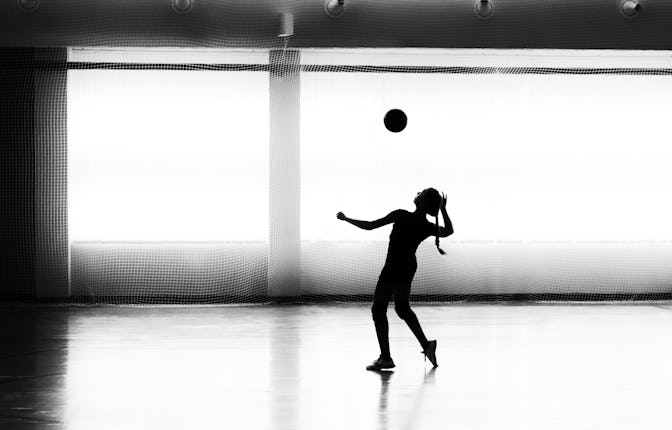Trans athlete bans have officially opened the door to state-sponsored harassment
Utah parents questioned a girl’s sex after she beat their kids in a competition. It won’t be the last time.

Last week, news broke that Utah’s high school athletic governing body, the Utah High School Athletic Association, investigated the birth sex of a female athlete after the parents of the second- and third-place girls filed a complaint. The investigation involved the UHSAA asking the girl’s school for records dating back to kindergarten to prove she met the requirements of the state’s newly enacted law limiting girls’ sport participation to “biological girls.”
The sole claim made by the complaining parents was that the winning girl “doesn’t look feminine enough.” Thankfully the investigation didn’t get back to the teen, or her parents. But now that the news is out, every female sports champion in Utah will be wondering if she was the one who was investigated for not looking pretty enough for upset parents who didn’t know her.
The incident should be a startling wake up call for those proclaiming to protect girls through state bills banning trans girls from girls sports. Banning trans girls from girls sports has become a centerpiece of the modern Republican Party, with party officials seeing such bans as a way to win back many of the suburban women voters who were lost in the Trump years. “The bill that we’re doing today will ensure fairness for women athletes for years to come in the state of Florida,” said Florida Gov. Ron Desantis when he signed his state’s trans athlete ban in June. “It says that athletic teams or sports that are designated for females are open to females. And we’re going to go based off biology.”
But as the first high-profile use of such a law, the Utah investigation shows that in reality, these laws may be enforced through a perception of a child’s appearance, not biology. (Utah Gov. Spencer Cox actually vetoed his state’s transphobic law, citing concerns about its potential impact on the mental health of trans youth, but his veto was overriden by the state legislature.)
To date, 18 states have passed laws similar to Utah’s. Each and every one has essentially opened the door to intense scrutiny of teenage girls’ bodies and appearances. Trans activists and commentators have warned for years that banning trans girls from adolescent sports would open the door to creepy and intrusive inquiries into the birth sex of girl athletes who perform “too well,” like the champion from Utah who was investigated. What the losing parents did to that girl is state-sponsored harassment — and the problem will only grow worse as the U.S.’s trans panic becomes further entrenched in the political divide.
The Women’s Sport Foundation has found that women and girls who play sports still face stigma for their participation. “Despite recent progress, discrimination based on the real or perceived sexual orientation and gender identity of female athletes persists,” reads a passage from the WSF website. “Girls in sports may experience bullying, social isolation, negative performance evaluations, or the loss of their starting position. During socially fragile adolescence, the fear of being tagged ‘gay’ is strong enough to push many girls out of the game.”
Whether intended by those campaigning to “protect women’s sports” or not, it’s quite obvious that these new laws against trans athletes significantly ramp up the threat of stigma based on perceived gender identity. The only saving grace in the Utah investigation case is that neither the girl nor her family found out about it. Such scrutiny from a statewide agency would be deeply humiliating for any girl, cisgender or trans.
But the existence of the investigation alone is itself troubling enough. I mean, let’s be clear: The state launched a secret investigation into an underage girl’s genitalia. What if school records had been ambiguous? Or if a school administrator had made an innocent mistake with her records one year? I shudder to think of what further, deeper humiliation the girl may have had to face. A doctor’s physical to look for surgical scars in her genital area?
In the not-so-distant past, female Olympic athletes and those at other high-level championships were made to parade naked in front of a panel of men in order to prove their womanhood. Intersex athletes are currently forced into repeated humilating sex tests, including a doctor performing palpation of the clitoris, DNA tests, and others in order to determine sex for sport participation. It has produced a string of negative psychological effects for the athletes themselves, none of whom deserve such scrutiny.
We’re talking about kids here. Any deep violation of a girl’s privacy like this runs the risk of driving her off from sports participation altogether — to say nothing of the deeper trauma that could result from such scrutiny. Trans people and activists tried to warn everyone, but our protests fell on deaf ears. And now girls may be facing literal investigations into their genitalia for years to come.